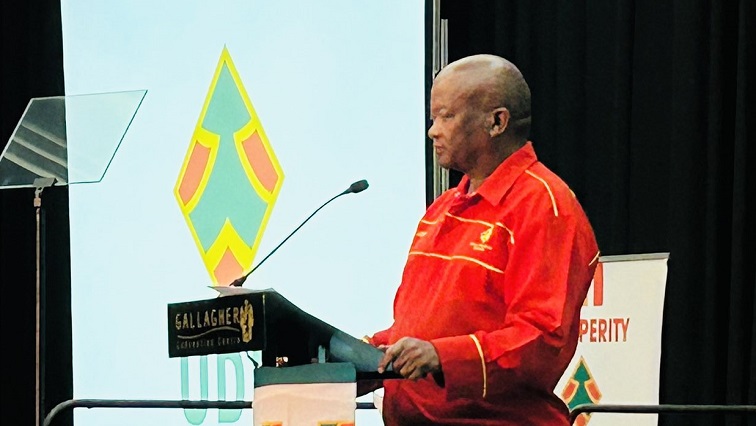United Democratic Movement (UDM) leader Bantu Holomisa has proposed the formation of an opposition alliance to contest the 2024 general elections.
Holomisa says such an alliance is essential to counter one-party dominance and strengthen multi-party democracy in the country.
He has decried the performance of the African National Congress (ANC)-led tripartite alliance, saying it has failed South Africans and therefore a new model is necessary to save the country from disaster.
[HAPPENING NOW]
Groundbreaking, honest and real debate taking place within the UDM National General Council 🇿🇦 putting South Africa first! 🟢🟡🔴@BantuHolomisa @N_Kwankwa #NationalGeneralCouncil #NGC2023 #UDM2024 pic.twitter.com/ud0UqDJSnl
— UDM (@UDmRevolution) April 28, 2023
Almost 400 UDM members from different party structures gathered in Midrand, Johannesburg, for their National General Council to plan a roadmap towards the 2024 elections.
The meeting will also engage in a consultation process towards finalising the party’s manifesto.
In an attempt to defeat the ANC at next year’s polls, UDM Leader Bantu Holomisa has proposed that opposition parties form a pact to contest the elections.
Coming to you LIVE from Gallagher Convention Centre, Midrand 🟢🟡🔴
UDM National General Council…#NGC #NationalGeneralCouncil #NGC2023 pic.twitter.com/5uh17TCHLk
— UDM (@UDmRevolution) April 28, 2023
“Should there be consensus to form an alliance, interested stakeholders should establish an umbrella body where all partners should contest the 2024 elections under one banner without them losing their identities. In order to contest elections the alliance’s umbrella body must be registered as a political party with the IEC. We must strive to be as inclusive as possible and we should champion inclusivity, equality and transparency.”
Holomisa says that an opposition alliance should be guided by a formal agreement amongst the stakeholders, adding that such an agreement will not only guide the interaction amongst signatories but also with the public.
“An alliance agreement governing the co-operation between various stakeholders should be drafted with a clear mission, vision and objectives and it should also define the role of each stakeholder; this will enable the various stakeholders to pursue a set of agreed upon goals whilst each party retains their independence. Some of the benefits of such an alliance include but are not limited to substantially improving competitiveness, sharing and bundling competencies and resources across provinces.”
The party acknowledged that the COVID-19 pandemic had had a negative effect on its political activities and it now plans to regain the lost ground.
UDM deputy president Nqabayomzi Kwankwa says, “We couldn’t organise on the ground and that created a situation where quite a number of our structures lapsed, we had to use the provision of some of the constitution to try to ensure that we extend the lifespan of some of the branches, that means that in some of the provinces where the UDM did not have great representation suffered a great deal and we are now in the process of trying to ensure that we are represented in all provinces.”
The UDM leader has also acknowledged a serious decline in his party’s electoral support over the years having only two seats in the National Assembly.
Holomisa urges delegates to deliberate on how to reinvigorate the party and grow its support.

